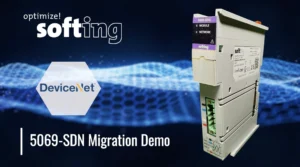Artificial Intelligence Challenge: These are the finalists for the 2021 KUKA Innovation Award
Innovations centered on the megatrend of artificial intelligence (AI): the finalists for the 2021 KUKA Innovation Award have been selected. Five teams convinced the international jury with their robotics concepts on the topic of AI. A monetary prize of 20,000 euro awaits the winner.
AI is becoming increasingly important for industry – and the combination with robotics, in particular, is opening up completely new possibilities and applications.
An international jury of experts evaluated the concepts for the “Artificial Intelligence Challenge” and selected five finalists. The teams are provided with a KUKA robot free of charge and are being trained and coached by KUKA experts throughout the competition. The five finalist teams now have until the virtual Hannover Messe in April to implement their ideas. They will present their applications to a large specialist audience at the international industrial trade fair before the jury chooses the winner of the renowned competition during the fair.
These are the finalists of the Artificial Intelligence Challenge:
Team ARAS
Implicit knowledge instead of complex programming codes: the goal of the team from the Brandenburg University of Technology Cottbus-Senftenberg is intelligent robot programming based on manual manufacturing sequences. The individual process steps are recorded by means of innovative data gloves and reproduced on the industrial robot using an AI-based self-learning system. The operator is freed from the need to formulate explicitly what the task is and how the robot has to perform it. Instead, the implicit knowledge of the operator during the manual manufacturing process is accessed. A corresponding skill sequence is automatically generated with this information, and the robot carries out its task – without the need to write a single line of code.
Team BlindGrasp
Humans can often easily explore closed spaces with their hands and pick up objects without even looking. The application by the international team of researchers from the Indian Institute of Science and the U.S. Massachusetts Institute of Technology aims to bring such capabilities to robots. The goal is for robots to explore, recognize and pick up objects in vision-denied environments using the sense of touch. To this end, the BlindGrasp team is designing a novel gripper with tactile sensing capabilities that gathers the contact and proximity information. This data, coupled with the force-sensing capabilities of KUKA’s lightweight robot LBR iiwa, is used by a machine learning agent to learn motion policies and thus safely explore the environment and pick up objects.
Team Chorrobot
The goal of Chorrobot from Belgium’s Katholieke Universiteit Leuven and Flanders Make@KU Leuven is to leverage artificial intelligence in order to enhance the productivity of car manufacturers as well as small and medium-sized enterprises by facilitating and expediting the deployment of bimanual robot manipulation tasks. The concept enables users without extensive expertise in robotics to demonstrate some aspects of the task and to intuitively specify other aspects via a graphical user interface. This approach facilitates the commissioning of challenging bimanual tasks – including fixtureless assembly operations that involve non-rigid and non-fixed elements – as well as bimanual inspection operations in unstructured environments.
Team CHRIS
Particularly during the COVID-19 pandemic, collaborative robots could help to reduce human-to-human interaction. However, configuring these machines for a set of given tasks still requires a great effort. The team from the A*STAR Institute for Infocomm Research in Singapore is developing a programming-free approach that leverages the latest developments in AI capabilities. The technology enables more natural and safer human-robot collaboration. This allows the robot to support operators, especially in a high-mix low-volume manufacturing environment. The concept from Team CHRIS is comprised of intuitive object and task teaching, activity understanding as well as multimodal perception (vision, touch and speech) and reasoning.
Team CRC
The COVID-19 pandemic and social distancing are increasing the reliance on remote work. However, the impact of online tools for the construction industry is limited. Team CRC from the Chair for Individualized Production / RWTH Aachen University & Robots in Architecture Research is therefore integrating automation technology into online collaboration. Cloud Remote Control enables users to run robots, monitor processes and adapt tool paths from the comfort of their home or international office. This increases accessibility to worldwide robotic production, adding layers of Industrie 4.0 device communication and artificial intelligence to path planning. In this way, Cloud Remote Control empowers teams to remain safely at a distance while still collaborating closely on automated construction.
About the KUKA Innovation Award
KUKA launched the innovation competition in 2014, focusing on different technologies each year. The goal of the award is to promote and expedite the transfer of technology from research to industry. All information about the competition as well as the topics and winners in recent years can be found here.









